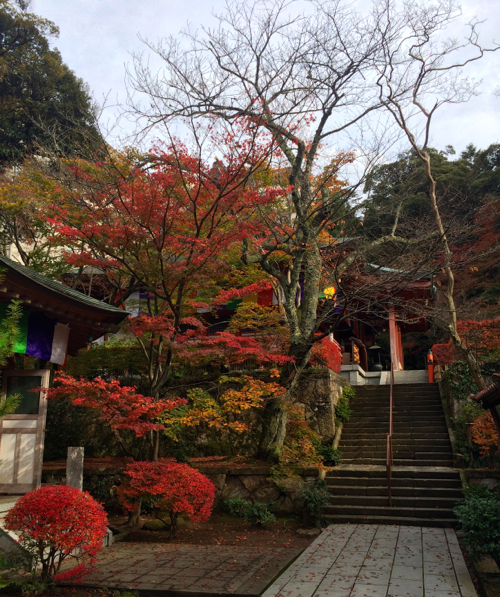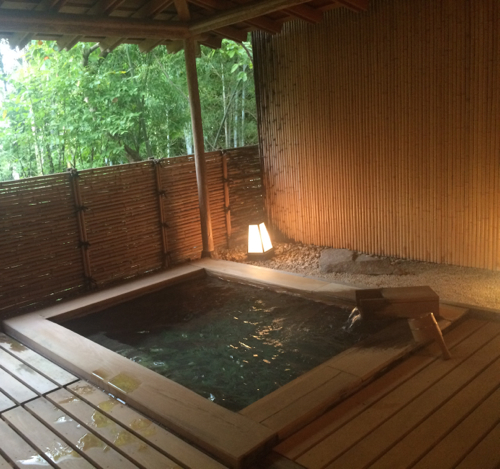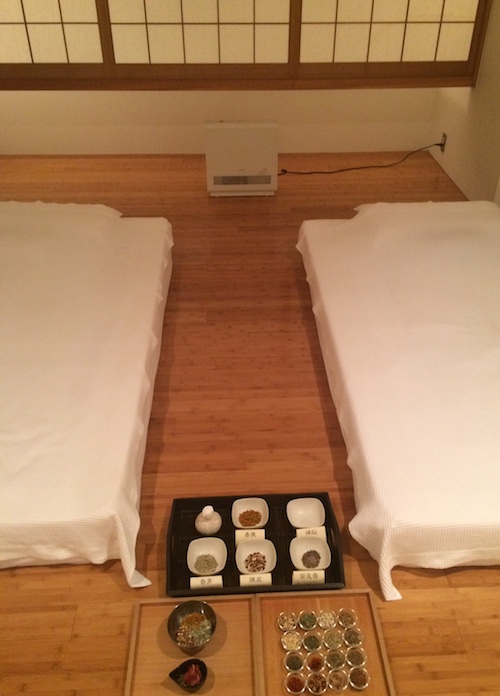Entei Spa at Beniya Mukayu: zen in nothingness while soaking in Japanese hot springs
Japanese onsens, the natural hot springs, have been rebalancing the bodies and minds of the zen cultured island nation for centuries. Many of good health seeking Japanese people, who could afford to travel into the specific hot spring sites, often remote in the mountains or coastal regions, would journey to these healing wells burbling with mineral-rich water. Usually staying at the local inns, in Japan known as ryokans, these wellbeing travelers would enjoy the deeply personal hospitality and a comfortable access to the public baths.


Yamashiro Onsen in the Ishikawa province in Western Japan also uplifts one’s spirituality. Its warm waters burble up from the Earth at the foothill of the “Healing Buddha’s Mountain” as the Yakushiyama area was once known. The Yamashiro hot spring was discovered over a millennium ago by a Buddhist monk on his pilgrimage to the Hakusan mountain. Folk belief in the sacred Hakusan mountain was empowered by five temples built in the area, the Yakuoin Onsenji temple in today’s Yamashiro town being the most prayed upon among Buddhists.
The monks healed people through the water’s alkaline mineral nature and when needed employed medicinal herbs. This ancient wisdom is being used today at the Entei Spa located inside the contemporary zen boutique hotel Beniya Mukayu. The place, whose later name means “nothingness”.


As a Relais & Châteaux property, the husband and wife owned and operated Beniya Mukayu caters to each individual guest with an astute sense of traditional Japanese hospitality. Their display of care, humbleness, and the zeal of their youthful Swiss-trained staff will make your stay so comfortable that you will forget all the disturbances of the modern daily life. Choose to stay either in refitted traditional tatami room as I did or stick to the Western room comforts.
Zen out in one of the hotel’s 16 rooms, the spa or during the 10-course locally sourced seasonal kaiseki meal prepared by the in-house master chef. Here, you are allowed to fully focus on the restoration of your one and only self, which will become self-less through this memorable stay. If you desire a hammock, they will hang it on your private terrace.
The balance of one’s spirit comes naturally while strolling in the surrounding wild garden. Bemuse yourself in the company of the flowering camellias, red-leafed maples, mighty pines and the giant sunny-coloured fruits of the Karin pears.
Around the hotel’s common areas, you will find pleasure in displayed contemporary art collected by the owners. Ceramics being for centuries the most distinguished local craft are exhibited and sold at the Beniya’s shop.
Myself, I had been inhaling the wisdom from the guest library, where hundreds of inspiring books in English and Japanese enrich your own knowledge database. Pottery, design, crafts, dining, traveling, … plenty of inspiration.
Flow with tradition in Japanese style
If you are a virgin to Japanese ryokan culture then the facilities may at first find yourself in s state of bewilderment. The staff is there to advise and explain all the rules of bathing, common dining as well as cohabiting a space dedicated to the purification of one’s soul. It becomes natural, fun and you will miss wearing the traditional wrapping dress once you leave as it saves you from decisions like what to wear, there is only one dress to cover yourself for the spa, to dine and you are encouraged to wear it around town! It may sound awkward for a Westerner, but most enjoy being part of the game.
Choosing to stay at the traditional Japanese room type is a revealing cultural experience. In your entrance hall, take off your shoes as barefoot walking on the tatami mats is mandatory. You also will get a pair of old-style socks with an awkward two toes split. It is an acquired habit and your feet might feel totally confused by this extraordinary arrangement. Economical in-room arrangements mean that your sitting room area will be transferred into a bed as the futon is unrolled each night on the tatami floor.

Taking traditional Japanese bath calms your mind, restores stamina, and allows for your thoughts to get lost in the haze of the hot spring water steam. Usually, these are public spaces with separate male and female facilities, but the guests of this hotel are each spoiled to having their own ofuro. Read more about the proper way to enjoy the hot bath. It is an ideal start to your spa treatment, so soak in and relax.
At Beniya Mukayu the entire rejuvenation happens holistically. Unlike at most spas, where just physical touching by human hands during a massage is designed to release one’s sorrows, here centuries of eastern knowledge are applied to your wellbeing. Traditional Chinese Medicine supervised by a certified doctor gave birth to the treatments, while natural, non-toxic biotechnological products were developed exclusively for the spa by Ph.D. Yoon Soung Choi, whose scientific background asserts self-reparatory immune abilities of the skin.
After filling up a detailed questionnaire, your resulting recent health and wellness profile will guide the therapist during the signature Yakushiyama body or face treatments as well as the aromatherapy oil massage, shall you prefer essential oils. Specific herbal blend for your personal needs is used for both the massage cream and for warm poultices pressed afterwards onto your skin. At the end, you relish in a foot bath and sip an herbal infusion, again fit for one of the four domains. These are Cho integrating internal balance, Ryu facilitating circulation, Sha discarding excess or Ho supplementing shortage. I needed to balance so I bought an extra supply of these herbs to brew while traveling.


Tea is Japanese cultural heritage, so in your room you will find two beautiful lacquer caddies, an oak brown one containing fresh sencha green tea while the black caddy shields from the external aromas and oxygen the local brown stem tea Kaga Bocha produced in the area. This for the region distinct roasted twig tea enchants you by its burned leaves flavors, while being lighter than most hōjicha and tastes like autumn to me.
The owner of the hotel, Mr. Nakamichi, daily upon request performs the shorter Urasenke tea ceremony, either in his tea ceremony room in the garden when it is warm outside or inside the library. He seriously whips a bowl of matcha for every attendee.
If hiking does not restore your balance, then daily morning yoga at the front part of the Horin (Square Forest) restaurant with open garden view stretches you gently out every morning. The 45minutes class is guided in Japanese, but you will need just these two words: sutteeeeeee (inhale) … haiteeeeeee (exhale)… a total ZEN.

